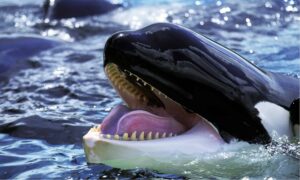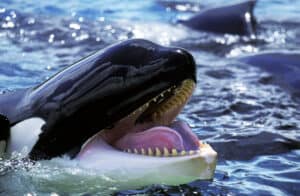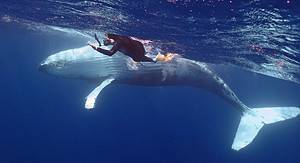Orca whales have one of the largest brains in the animal kingdom. This is clear in their behavior and makes them a truly fascinating species. One such interesting behavior they have been exhibiting recently is attacking boats! This article will discuss the orca whale biology and behavior that may contribute to this anomaly and then will reveal where orcas have been attacking.
Orca Whales
Biology
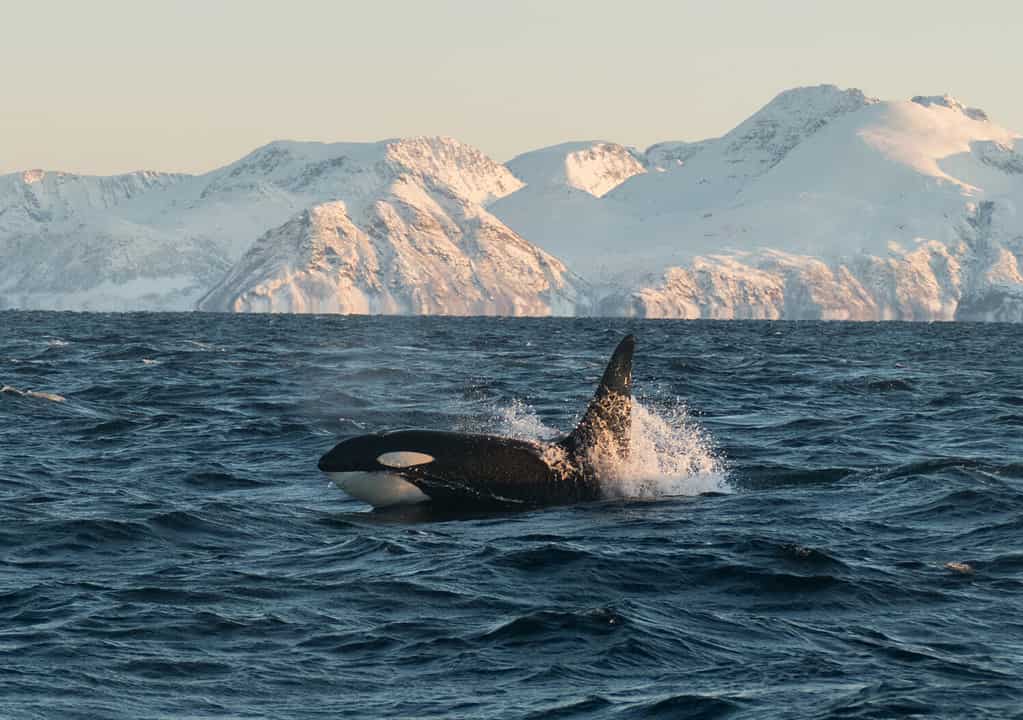
Orca whales are the largest species of dolphin.
©Miguel Schmitter/Shutterstock.com
The majestic orca whale, scientifically known as Orcinus orca, holds a remarkable place in marine ecosystems due to its distinctive biology. Belonging to the class Mammalia, order Cetacea, and family Delphinidae, the orca is the largest member of the dolphin family. What sets the orca apart is its striking black and white coloration. It has a sleek and powerful body that can reach lengths of up to 30 feet (9 meters) for males and slightly smaller for females. The orca’s most recognizable feature is its tall dorsal fin, which can grow up to 6 feet (1.8 meters) in height. Orca tails are unique to each individual, which aids researchers in identification.
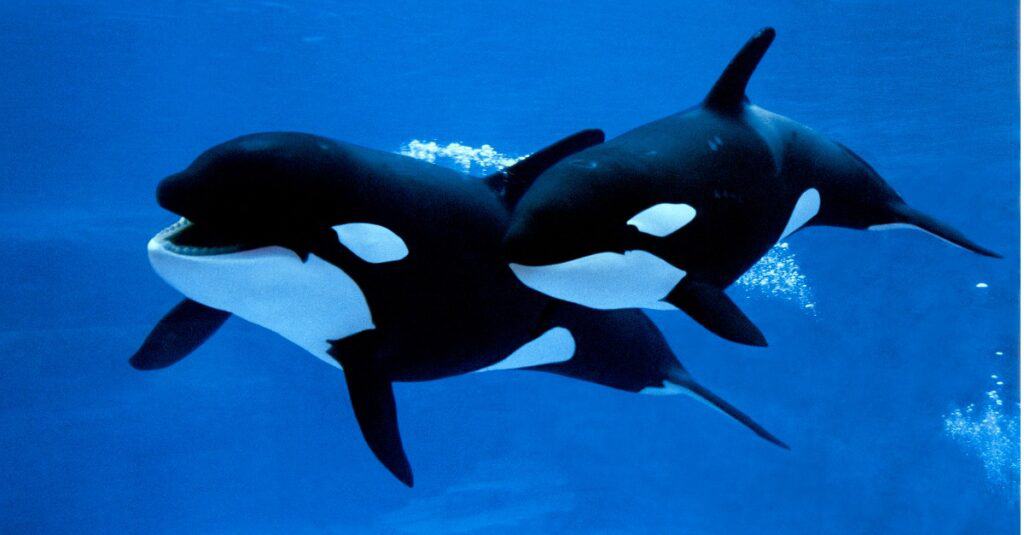
Orca whales have streamlined bodies that make them extremely efficient swimmers.
©slowmotiongli/Shutterstock.com
Anatomically, orcas are designed for efficiency in their aquatic environment. Their streamlined bodies enable them to reach speeds of up to 34 miles per hour (55 km/h), while their strong tails and flippers help propel them through the water with grace and power. Notably, the orca’s brain is among the largest in the animal kingdom. It has a famously complex structure and high level of encephalization, which likely contributes to their complex social behaviors and adaptability.
Dietarily, orcas exhibit great versatility, earning them the nickname “wolves of the sea.” They are apex predators that occupy various ecological niches and exhibit diverse feeding strategies. Different orca populations have developed distinct dietary preferences, ranging from fish like salmon and herring to marine mammals such as seals, sea lions, and even larger prey like baleen whales. Some orca groups have even been observed utilizing advanced, cooperative hunting tactics to catch this prey. Their adaptability in diet contributes to the orca’s significance within marine ecosystems, making it a truly captivating and influential species.
Behavior
Orcas have incredibly complex behavioral patterns. These behaviors are deeply rooted in their social structures and immense intelligence. Orca whale intelligence is evident in their ability to solve problems, exhibit curiosity, and demonstrate advanced learning capabilities. With brains that are exceptionally developed, particularly in the areas associated with emotions and social interactions, orcas possess the capacity for communication and cultural transmission within their groups.
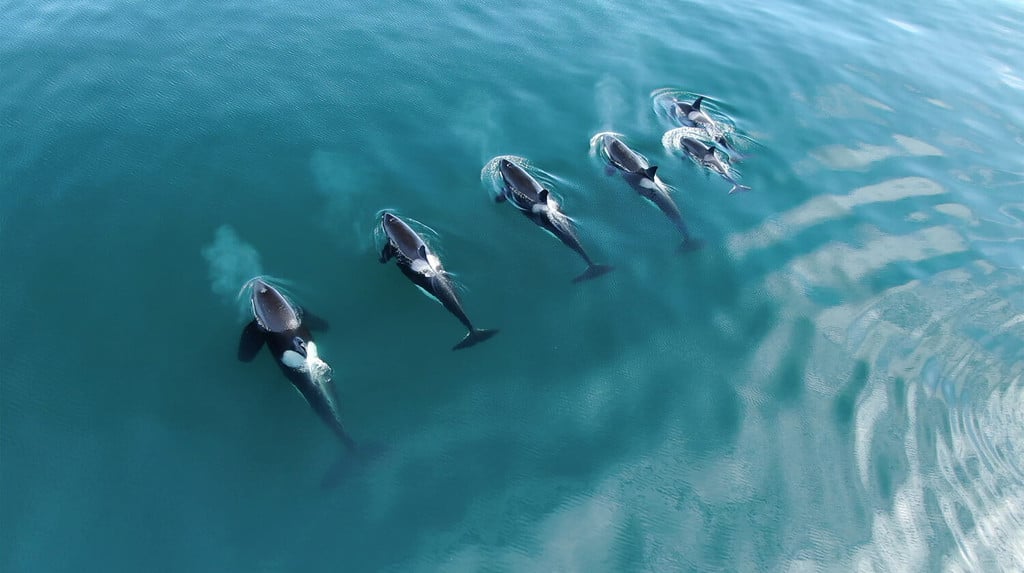
Orcas live in social units called pods.
©Willyam Bradberry/Shutterstock.com
At the heart of orca communities is their strong sociality. These marine mammals live in closely-knit family groups called pods. Pods can consist of multiple generations and have a matriarchal figure, usually the oldest female. Pods vary in size, ranging from a few individuals to as many as several dozen members. These groups exhibit tight bonds and maintain their connections through vocalizations, body language, and physical contact. The orca’s diverse repertoire of vocalizations, which include clicks, whistles, and pulsed calls, contributes to their incredible communication system and facilitates coordination during various activities.
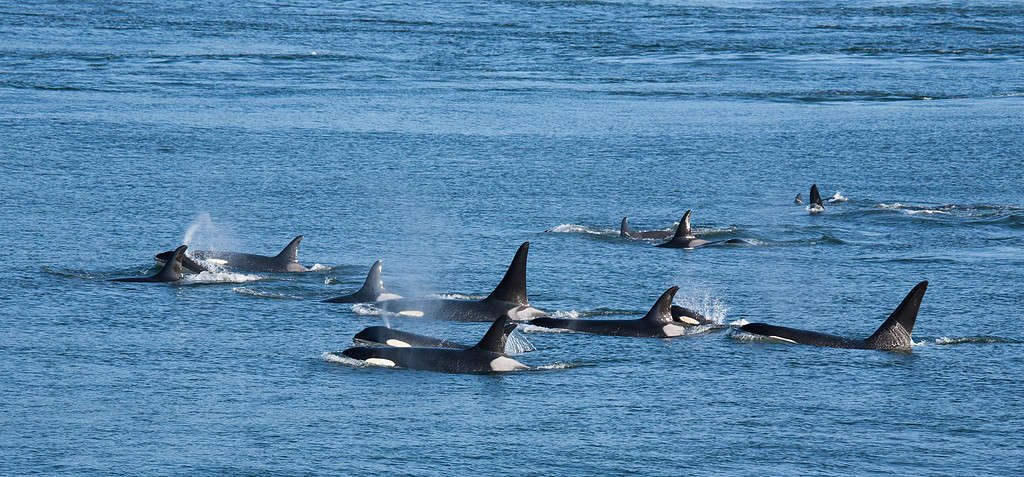
Orca whales are capable of hunting cooperatively which exemplifies their advanced cognition.
©iStock.com/cullenphotos
Cooperative hunting is one of the most amazing aspects of orca behavior. Different populations of orcas utilize ingenious strategies to catch prey. Some groups, known as “resident” orcas, specialize in hunting fish. Others, like “transient” orcas, target marine mammals. The hunting tactics can involve coordination, planning, and communication among pod members. For instance, when hunting seals, orcas work together to create waves that wash seals off ice floes, illustrating their capacity for sophisticated cooperation. This ability to collaborate not only ensures the success of hunting but also strengthens the bonds within the pod, contributing to the rich tapestry of orca social dynamics. In essence, orca behavior and sociality provide a glimpse into the intricate lives of these highly evolved marine mammals.
Distribution
Orcas have a remarkably wide geographic distribution They live in oceans across the globe, from polar to tropical waters. Orcas inhabit both nearshore and offshore environments, encompassing diverse regions such as the Arctic, Antarctic, Pacific, Atlantic, and Indian Oceans. Their adaptability to various habitats makes them an iconic species with a truly global presence.
Recent Orca Attacks
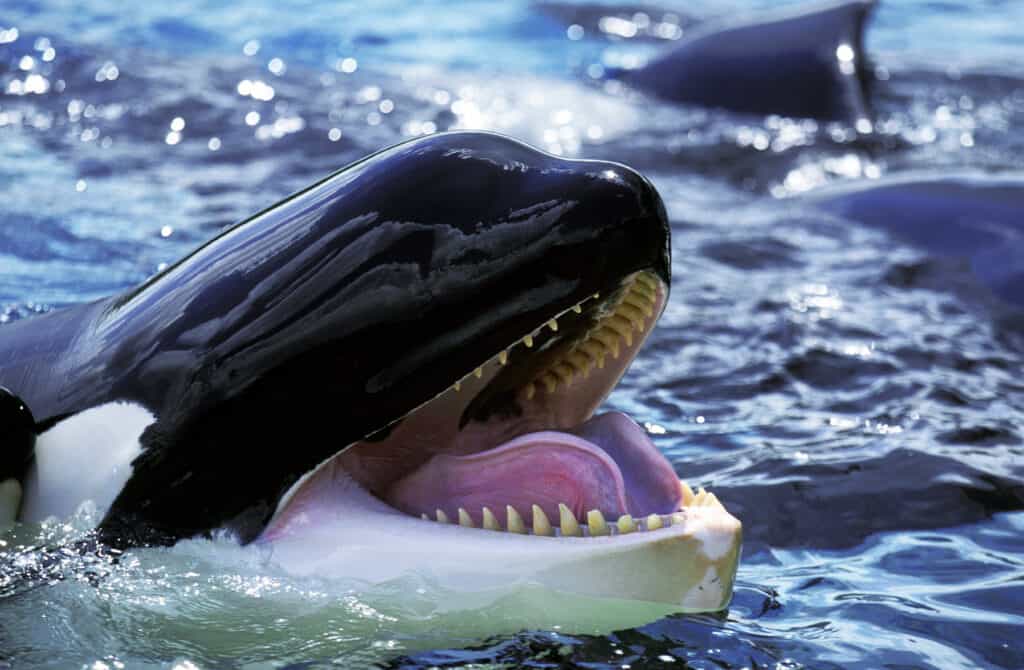
This Iberian whale lives in a pod off the coast of Portugal.
©slowmotiongli/Shutterstock.com
Since 2020, there has been an increasing number of orca whale attacks on boats off the Iberian Peninsula. Several vessels have been damaged and many have sunk. In fact, there have been more than 500 reports of interactions with orcas in this area ranging in severity from benign bumps to breaking rudders, spinning boats, and sinking them. So where exactly have these attacks been occurring?
These orca whales are continuing their attacks off the coast of the Iberian Peninsula, specifically the coasts of Spain, France, and Portugal. Many attacks have occurred near the Strait of Gibraltar, including one in 2023. Many of the Orca interactions that have caused damage to boats thus far were perpetrated by a subpopulation of orcas called Iberian orcas.
Check out this article to learn more about why scientists believe the orcas are attacking boats!
The photo featured at the top of this post is © Willyam Bradberry/Shutterstock.com
Thank you for reading! Have some feedback for us? Contact the AZ Animals editorial team.



